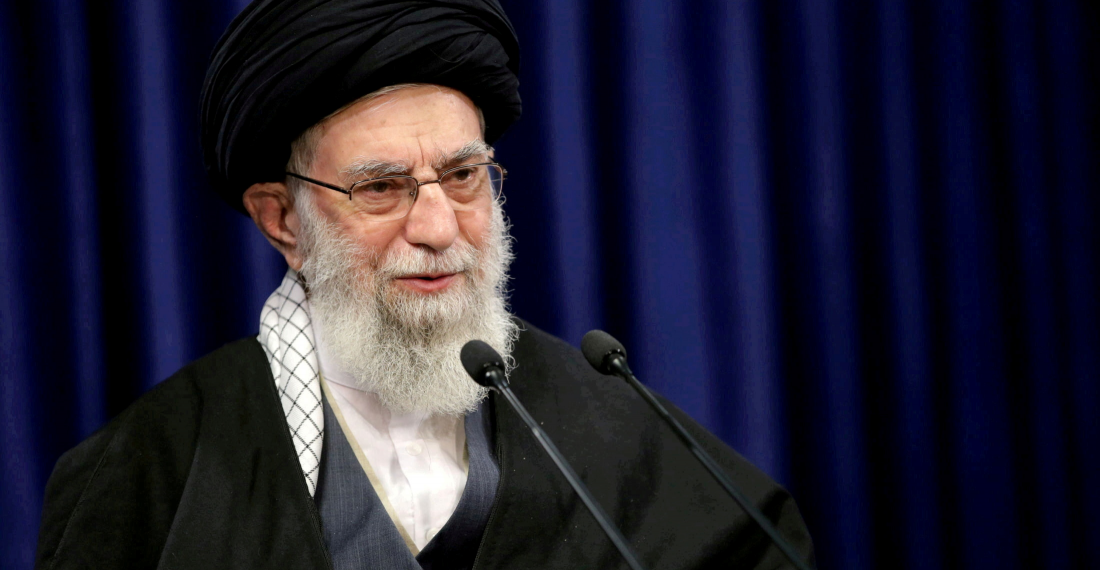As Iran heads into the fourth week of massive nationwide anti-government protests, Iran’s supreme leader Ayatollah Ali Khamenei has spoken out for the first time since mid-September, blaming the United States and Israel for the unrest.
While acknowledging the “tragedy” of the death of Mahsa Amini - a 22-year-old Iranian woman who died on 16 September after being arrested by the country’s morality police for allegedly not wearing her hijab correctly - in a speech during a graduation ceremony of police and armed forces on Monday (3 October), Khamenei said: "I say clearly that these riots and the insecurity were engineered by America and the occupying, false Zionist regime [Israel], as well as their paid agents, with the help of some traitorous Iranians abroad."
No evidence was provided to support his claim.
Three days after being arrested, Mahsa Amini died in hospital in Tehran. Witnesses report seeing Ms. Amini being severely beaten, while official authorities have said she died of a heart attack.
What followed Ms. Amini’s death was a series of large protests with the slogan “women, life, freedom”, quickly spreading to all of Iran’s 31 provinces. It has been the biggest show of opposition Iran’s authorities have faced since “Bloody November” in 2019.
Three weeks later, the protests in Iran are still ongoing, demonstrating a deeper undercurrent of dissatisfaction many Iranians have with the clerical authorities.
In response to the uprisings, Iranian security forces have cracked down aggressively on the protests. On Friday 30 September, the Iranian human rights organisation IHR reported that at least 41 people were killed in violent clashes that erupted in the city of Zahedan during a protest in response to accusations of a police chief having raped a 15-year-old girl.
The report of mass-killings in Zahedan shocked the rest of the nation and intensified demonstrations. On Saturday 1 October protests began at approximately 100 universities in Tehran, Esfahan, Mashhad and other cities. Iranian state media announced there were “reports of clashes”, and video footage circulating on social media has shown Iranian security forces trying to separate students with tear gas.
Despite increasing casualties and the violent attempted crackdown, protests have not abated. Meanwhile, the Iranian government has struggled to account for the uprisings amidst global condemnations by Western nations and the U.N.
source: commonspace.eu with agencies
photo: Reuters






